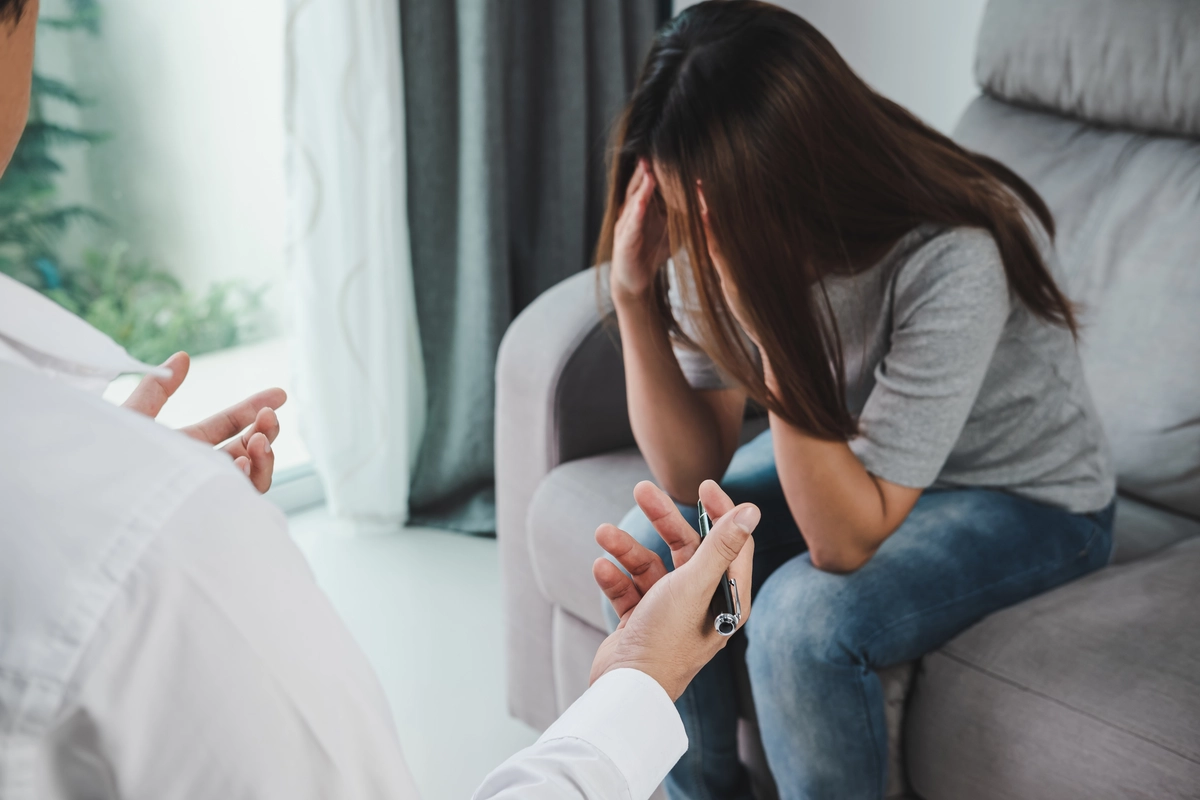24/7 Helpline:
(866) 899-111424/7 Helpline:
(866) 899-1114
Learn more about PTSD Treatment centers in El Prado
PTSD Treatment in Other Cities

Other Insurance Options

Premera

Evernorth

Oxford

Self-pay options

CareSource

BlueCross

UnitedHealth Group

Carleon

Holman Group

Lucent

Humana

Medical Mutual of Ohio

Regence

Anthem

Aetna

MVP Healthcare

American Behavioral

Covered California

Ambetter

Horizon Healthcare Service

Vista Taos Renewal Center
Vista Taos Renewal Center offers a 28-day residential treatment for individuals with alcohol and/or ...




Trauma and Recovery Centers
Trauma and Recovery Centers is a public rehab located in El Prado, New Mexico. Trauma and Recovery C...

Hogar Crea Gurabo
Hogar Crea Gurabo is a private rehab located in El Prado, New Mexico. Hogar Crea Gurabo specializes ...



Shadow Mountain Recovery
Shadow Mountain Recovery -- Taos Men's Detox and Residential Treatment Center is a residential drug ...









































































































































































Rio Grande Intensive Outpatient Treatment
Rio Grande Intensive Outpatient Treatment is a private rehab located in Taos, New Mexico. Rio Grande...

La Familia – Namaste – Taos
La Familia - Namaste is a non profit rehab located in Taos, NM. La Familia - Namaste specializes in ...

Taos Detox
Taos Detox is a private rehab located in Taos, New Mexico. Taos Detox specializes in the treatment o...

Tri County Community Services
Tri County Community Services is a private rehab located in Taos, New Mexico. Tri County Community S...

Tri County Community Services – Detoxification Center
Tri County Community Services – Detoxification Center is a private rehab located in Taos, New Mexico...

Tri County Community Services – Sipapu
Tri County Community Services – Sipapu is a private rehab located in Taos, New Mexico. Tri County Co...

Agave Health
Agave Health is a private rehab located in Taos, New Mexico. Agave Health specializes in the treatme...

Vista Taos – Renewal Center Casa Feliz
Vista Taos – Renewal Center Casa Feliz is a private rehab located in Taos, New Mexico. Vista Taos – ...

The Dream Zone
The Dream Zone is a private rehab located in Taos, New Mexico. The Dream Zone specializes in the tre...

AA – Alcoholics Anonymous
AA – Alcoholics Anonymous is a non-profit rehab located in Taos, New Mexico. AA – Alcoholics Anonymo...

































































































